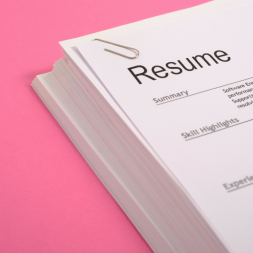Resume Mistakes We’re Surprised (Even Experienced) NPs Make
If there’s one thing I do a lot of here at ThriveAP, its review resumes. Whether I’m providing guidance to a job-seeking nurse practitioner, to an NP applying to our programs, helping out an employer or as a favor to a colleague, over the past few years I’ve looked at hundreds of nurse practitioner resumes. There are certainly a number of accomplished, motivated NPs out there, but I’m consistently shocked at how poorly some showcase their education and experience. Come on all, you have a graduate degree, you should know how to use capital letters correctly, right?!
In all seriousness, I find that nurse practitioners fall short on their resume assembling skills. Having sat on the employer side of the equation, here are a few mistakes I’m surprised to find nurse practitioners (yes, even you experienced NPs!) making.
1. Using Automated Resume Builders
Job search websites like CareerBuilder and Indeed often offer to format a resume for the user. You log in, enter your education and work experience etc. and viola! – you’ve got a resume. Sites make it easy to submit the information you’ve entered online to employers easing your job search stress. So, what’s the problem?
When you enter information into these online resume-building platforms, you’re left unaware as to what the finished product looks like. Your prior experience may not come across the way you intended. You may not have a chance to review the submission to double check for misspelling and grammatical errors. The automated fields may have included information you don’t want on your resume. Not to mention, it can look like you were too lazy to create an actual resume to the recipient of your application. If you must use an online resume builder, make sure to review the resume you create in printed form before submitting to employers.
 2. Not Including Your Job Title
2. Not Including Your Job Title
After each and every position you’ve held, you must include your job title at that company. Many resumes I review name a healthcare facility and move right into listing the responsibilities of the position without including a job title. This leaves a lot of ambiguity for the reviewer – were you employed as a nurse practitioner? An RN? A clinical student? Employers may receive hundreds of resumes for a single position. Rather than take the time to decode yours, it will probably end up in the recycle bin if it’s not straightforward and clear.
3. Misrepresenting Your Experience
I’ve never been one to shy away from applying to jobs for which I’m not qualified. If you too are a hard worker and up for a challenge, there’s nothing wrong with applying for a position and outlining why you think you’re a good fit in a cover letter even without meeting minimum requirements. But, don’t lie or misrepresent your experience. For example, if you’re applying for a nurse practitioner job and must enter years of experience in an online application, don’t include your nursing experience in this calculation. Sure, your life as an RN will help you out as a NP, but to an employer this makes you look shady. A better way to get your foot in the door is to identify a direct contact at the company and email your resume and cover letter rather than applying online and getting lost in the mix.
4. Spelling Mistakes and Formatting Errors
Alright people, I include this on every piece of resume advice we publish here at ThriveAP, but feel compelled to say it again “Proofread your resume!”. Once you’ve proofread your resume at least a hundred times, have a few friends look it over as well. They will likely be better positioned to catch mistakes since they’re not as familiar with the document. I consistently see spelling errors, grammar errors and formatting inconsistencies in resumes. If you aren’t thorough enough to avoid resume errors, an employer can only assume you’ll do a sub-par job at patient care. Remember, your resume is a first impression of yourself. Treat it as such.
5. Job Hopping
Job hopping (i.e. having a number of jobs you’ve held each for only a short period of time) doesn’t look good on a resume. It signals to the employer that you’ll probably leave the job you’re currently applying for, too. For some nurse practitioners, however, there may be a totally legitimate reason for changing positions. Perhaps you worked just one year in a job and now a sick family member is motivating a move back home. Or, maybe you have a spouse in the military which necessitates frequent relocation. If your resume potentially signals that you’re a job hopper, address the issue in a cover letter with a brief, positively positioned exlpanation. This way you just might make it through a screening process that would otherwise weed you out.
You Might Also Like: The Harsh Truth About Applying for NP Jobs Online

